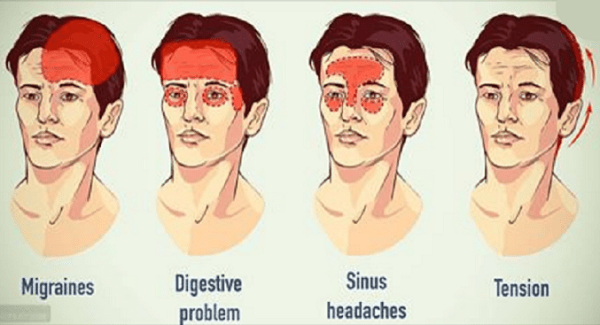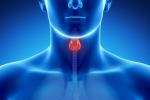How to Get Rid of Sinus Headaches

This type of headache is often characterized by a deep and constant pain in the forehead, with the sensation slowly creeping to your cheekbones and the bridge of your nose. Any sudden movement or stress can lead to the exacerbation of that pain.

Most of us have experienced the pain of sinus headaches at some point without even realizing it. In most cases, people misdiagnose its symptoms either as a migraine or as a simple stress-induced headache. However, it is vital that readers understand that sinus headaches belong to a different category altogether.
This article seeks to help you do just that. It presents all the symptoms of the typical sinus headache. Moreover, it provides readers with a comprehensive guide on how to get rid of them. So, make sure to read on and remember those tips.
Symptoms and Overview Sinus Headaches
In order to fully comprehend the cause of these headaches, readers must first understand the importance of sinuses. They are natural parts of the human body. To put it simply, these sinuses are the located inside the forehead, the cheekbones, and behind the bridge of your nose. They are also filled with air.
Remember, these sinuses can become irritated and inflamed. These can be triggered bya myriad of reasons, includingthings like allergic reactionsand viral infections. As the sinuses inflame and swell, they inadvertently producemore mucus.Hence, the channels and pathways that are supposed to drain them become clogged and blocked leading to a build-up of pressure in the sinuses. As it mounts, the individual will start to feel the sensations of pain which characterize sinus headaches.
More often than not, sinus headaches are mistaken for other forms of recurring headaches, such as migraines and tension headaches. Misdiagnosing one’s condition can prove to be problematic as it could also lead to the wrong sort of treatment. That being said, it is important for readers to know the symptoms that come with sinus headaches which include:
- Runny nose
- Feelings of discomfort and fullness in the ears
- Fever
- Facial Swelling
Of course, it is of utmost importance that you seek medical attention if you feel that you are suffering from sinus headaches. In most cases, the doctor should be able totell you if this is the case based on the symptoms alone and the results of quick a physical exam. However, there are also instances wherein you may need to undergo an MRI scan just to be sure.
It also needs to be mentioned here that complications stemming from a sinus infection are rare, to say the least.However, prolonged infections without medical helpcan lead to problems more serious than sinus headaches. For instance, the erosionof the bony walls of the sinus can occur which would lead to the spread of infection to the adjacent facial structures such as the eye socket and even the brain itself.
Possible Treatments for Sinus Headaches
Before anything else, readers should understand that the treatment goal for sinus headachesfocuses on two specific goals. First, these treatments seek to decrease the inflammation of the sinuses in order to help themucus drain and alleviate the pressure thus leading the pain levels to lower. Secondly, these treatments are designed to make the patient as comfortable as possible while the primary symptoms are being dealt with.
There is a whole range of treatment options for sinus headache patients, from home remedies to prescription medication and even surgery. However, it should be stated here that you should not do anything without the advice of your physician.
As a basic rule, patients should remain hydrated. Drinking plenty of fluids help. At the same time, patients can also make use of a saltwater nasal spray as it is helpful with congestion. However, we highly recommend that patients give Neti pots a try. These provide an alternative way for humid airto get into the nasal passages. Keep in mind that this particular home remedy assists with the drainage and prevents furtherinfection and inflammation.
There is certainly no shortage of over-the-counter (OTC) sinus medications on the market today. These cold medications are designed to help addressthe patient’s inflamed sinuses and promote the drainage of the mucus. More often than not, these would include painkillers and regular cold medications that deal with both aspects of the problem.
In more serious cases, your doctor may prescribe prescription medications. For instance, if your headaches stem from some sort of allergic reaction then you may be given a prescription for nasal steroids sprays. When used alongside nasal saline rinses, it may be able to dramatically decrease the level of inflammation within the nasal passages thus effectively treating or preventingthe onset of sinus infections.
On the other hand, if your doctor suspects a bacterial infection, then they may prescribe you with some form of antibiotics.Concurrently, they will also suggest specific ways to treat the existing inflammation. In order to determine the need for this particular treatment, they will first have to be sure whether you have acute bacterial rhinosinusitis or not. For instance, you should feel the sinus headaches for at least 10 days.
Keep in mind that both generic and branded drugs have been proven to be effective in addressing the symptoms of sinus headaches. However, it is also worth noting here that they usually contain pseudoephedrine. This particular substance is closely related to adrenaline which can prove to be troublesome for pregnant women as well as people with heart conditions and high blood pressure. That is why it is doubly important that you consult with your doctor first before taking any medications.
For more extreme cases, surgery may become an option. This becomes necessary when the sinus headache persists over extended periods of time and all the available courses of treatment fail to relieve the sinusitis. As a basic rule, this is considered as a last resort for both the doctors and the patient themselves. This would also entail the help of an Otorhinolaryngologist,commonly known as an ear, nose, and throat surgeon. To treat the problem, the procedure would entail widening the passagewaysthat allow the sinuses to drain. This would not only ensure that the pressure is relieved, but it also decreases the risk of recurrent sinus inflammation in the future.
PreventingSinus Headaches
As stated in the previous sections of this article, sinus headaches are often due to the inflammation of the sinuses.The inability to drain mucus to the back of the nose creates unwanted pressure and pain would subsequently follow. That being said, it would be highly advisable if you could avoid the things that trigger the swelling of the sinuses in the first place.
This means staying away from allergens such as smoke, dust, and pollen in order to decrease the risks of sinusitis. Similarly, you should also take steps towards preventing colds and other respiratory infections.Frequent hand washing certainly helps in this regard. It would also be ill-advised for you to get on airplanes when you are suffering from a cold as the changes in the air pressure could potentially trigger a sinus headache.
These are just a few of the things that you should keep in mind about Sinus Headaches and sinus relief.






